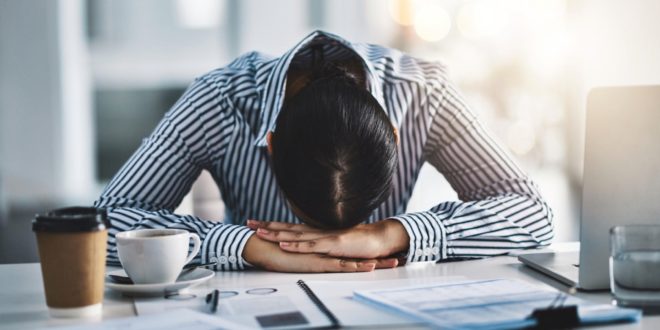Burnout is a demoralizing feeling that can affect many people in their day-to-day life. It is the feeling of emptiness, mental exhaustion, and lack of motivation/care. This has been an ongoing feeling for many people for a while, including SIU alumnus, graduate teaching assistants, and undergraduates.
“The Burnout Pandemic”
A multitude of reasons can cause burnout. However, during the middle of the COVID-19 pandemic, studies showed a skyrocket of people feeling burnt out. In a Healthline article titled College Students Increasingly Report High Levels of Anxiety and Burnout During the Pandemic, a report showed that from August 2020 to April 2021 an increase of 31% of students said that they feel burnt out. Not only was there a major increase of student burnout, but there also was a 4% increase of students that screened positive for depression and anxiety (Citroner, George). Burnout and depression have many symptoms that overlap, making it hard to decipher which is which. However, constant, untreated burnout and stress can lead to mental illnesses such as depression and anxiety (Isler).
Southern Illinois University graduate assistant, Monika Fudala, even has first-hand experience from this “Burnout Pandemic.” She shares that she took 20 credit hours from SIU and from her local community college during the 2020 summer semester. She says, “I did not get a summer break, and went straight into the Fall 2020 semester. It was so, so hard. I worked hard and kept winter break as my goal for a stressful year.” This idea of “reaching the light at the end of a dark tunnel” is a common motivator for many people that are currently experiencing burnout. It is their motivator that pushes them to complete their semester, huge workload, or any other tasks.
You are not Alone
When going through burnout, you must remember that you are not alone. Though you may seem isolated due to this exhausting feeling, many people in work and school environments can relate to feeling burnt out. SIU Senior and Public Relations Student Society of America vice president, Carter Walton, says, “Yes, I have experienced burnout for sure. Much more recently than in the past.” He explains he is trying to improve how he handles his own personal burnout, and how he uses a few tricks to alleviate this feeling.
Tips to Prevent this Feeling
Luckily, since there are many people that deal with burnout, there have been some tips and tricks they use to make sure they experience little to no burnout.
- Don’t Overload Your Calendar – this may seem a little straightforward, but for a lot of people overloading their calendars and not giving themselves time off is a main reason they experience burnout. Having a designated time or day when you aren’t working helps with burnout as it gives you time to relax and take time to destress.
- Say No – some people struggle with the concept of saying no, especially people that consider themselves “yes men.” This is important when it comes to adding tasks to your calendar and overworking yourself.
- Talk to Someone – whether a friend, a family member, or a therapist, talking to someone can help you figure out the issue(s) that is causing you to be burned out. These people can also offer a unique perspective or advice on how you can overcome burnout. Though, it is important to remember what works for them may not necessarily work for you.
Burnout is extremely common, and many people in different stages of their life feel or have felt this demoralizing feeling. It is important to remember that you are not alone.
 SIU PRSSA Southern Illinois University Public Relations Student Society of America
SIU PRSSA Southern Illinois University Public Relations Student Society of America




